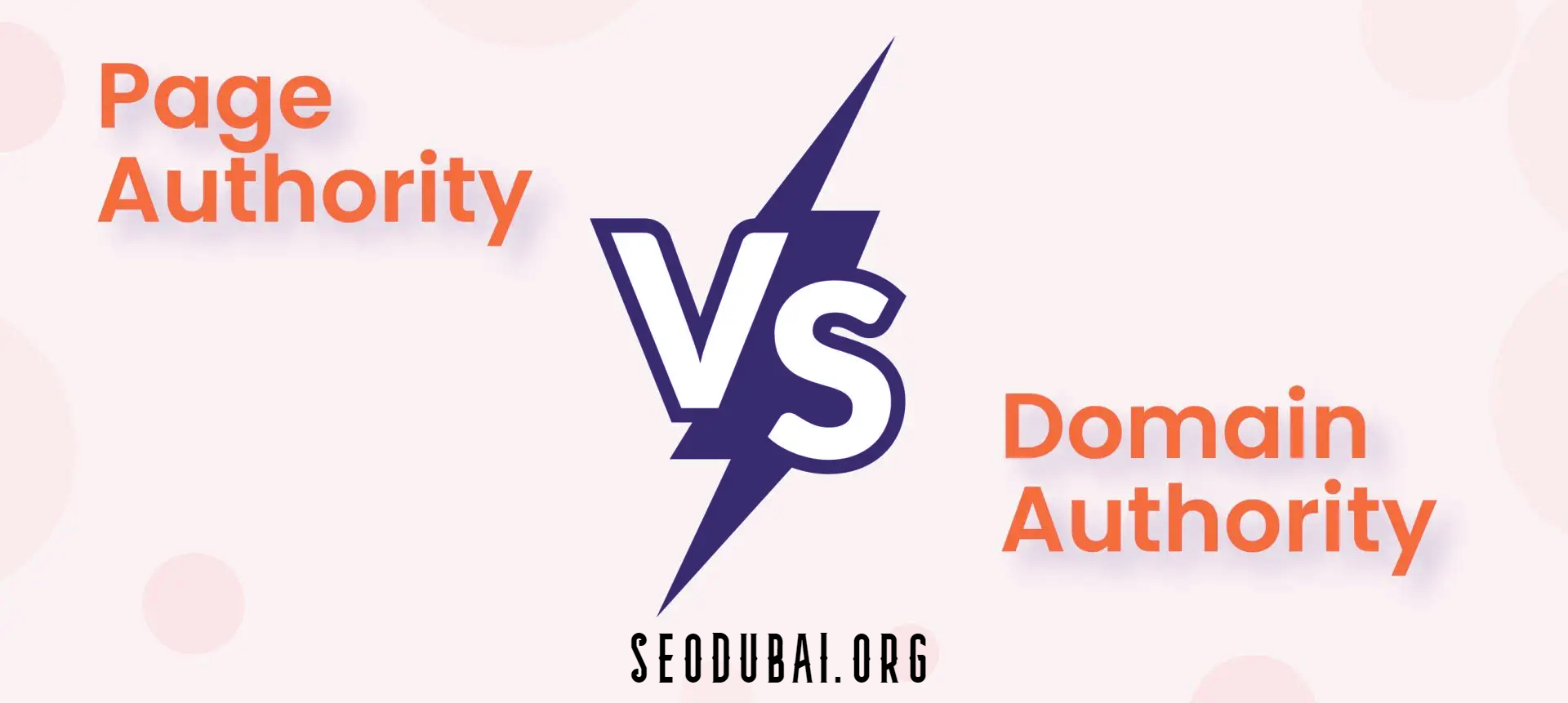Page Authority Checker
Understanding Page Authority
What is Page Authority?
Page Authority (PA) is a metric developed by Moz that predicts the ranking potential of a specific webpage on search engine result pages (SERPs). PA scores range from 1 to 100, with higher scores indicating a greater ability to rank. It is calculated using various factors, including link metrics, and is designed to give an overview of how well a webpage is likely to perform in search engine rankings. Unlike Domain Authority (DA), which measures the overall strength of an entire domain, PA focuses on individual pages.

PA is crucial for digital marketers and SEO professionals as it helps identify the strength of specific pages within a website. By understanding the PA of their pages, webmasters can optimize their content, improve link-building strategies, and ultimately enhance their search engine rankings. The higher the PA, the more likely a page is to rank well, attracting more organic traffic.
Importance of Page Authority in SEO
Page Authority is an essential component of SEO strategy. It provides insights into how well a page is optimized and its potential to rank for targeted keywords. Higher PA indicates better performance, which can lead to increased visibility, traffic, and conversions. SEO professionals use PA to assess the effectiveness of their optimization efforts and to identify pages that need improvement.
PA also plays a significant role in competitive analysis. By comparing the PA of their pages with those of competitors, businesses can identify areas where they need to improve to outperform their rivals. Additionally, PA helps in link-building strategies, as linking to pages with higher PA can enhance the credibility and authority of a website.
How to Check Page Authority
Tools for Checking Page Authority
Several tools are available for checking Page Authority. Moz's own Page Authority Checker is one of the most popular and reliable options. Other tools include Ahrefs, SEMrush, and Small SEO Tools. Each tool offers unique features and benefits, but they all aim to provide accurate PA scores.
Using these tools is generally straightforward. Users simply need to enter the URL of the page they want to check, and the tool will generate the PA score. Some tools also offer additional metrics, such as Domain Authority, backlinks, and keyword rankings, providing a comprehensive overview of a page's SEO performance.
Step-by-Step Guide to Using a Page Authority Checker
- Choose a Page Authority Checker tool, such as Moz or Ahrefs.
- Navigate to the tool's website or platform.
- Enter the URL of the page you want to check in the provided field.
- Click on the "Check" or "Analyze" button.
- Review the generated PA score and additional metrics.
- Use the insights to optimize your page and improve its ranking potential.
Regularly checking Page Authority can help you stay on top of your SEO game and make necessary adjustments to your strategies.
Using Moz Page Authority Checker
Introduction to Moz Page Authority Checker
Moz's Page Authority Checker is a widely-used tool in the SEO community. It provides accurate and reliable PA scores, helping webmasters and SEO professionals assess the ranking potential of their pages. Moz's tool is user-friendly and offers a range of features that make it easy to understand and improve page performance.
Moz calculates PA using a machine learning model, which considers various factors, including link metrics and social signals. The result is a score that predicts how well a page is likely to rank on SERPs. Moz's Page Authority Checker is part of a broader suite of SEO tools offered by the platform, making it a valuable resource for comprehensive SEO analysis.
Features of Moz Page Authority Checker
Moz's Page Authority Checker offers several features that make it a powerful tool for SEO professionals. These include:
- Accurate PA Scores: Moz provides precise PA scores based on its advanced algorithm.
- Link Metrics: The tool offers insights into the quality and quantity of links pointing to a page.
- User-Friendly Interface: Moz's interface is intuitive, making it easy for users to check PA and interpret results.
- Additional Metrics: Moz also provides Domain Authority scores, keyword rankings, and other valuable SEO metrics.
By leveraging these features, users can gain a deeper understanding of their pages' SEO performance and take steps to improve their rankings.
Benefits of Checking Page Authority
Improving SEO Rankings
Checking Page Authority is crucial for improving SEO rankings. By understanding the PA of individual pages, webmasters can identify strengths and weaknesses in their SEO strategy. Pages with higher PA are more likely to rank well, attract organic traffic, and drive conversions.
Improving PA involves optimizing on-page elements, building high-quality backlinks, and creating valuable content. Regularly monitoring PA allows webmasters to track their progress and make necessary adjustments to their strategies. As PA increases, so does the likelihood of achieving higher rankings and better overall SEO performance.
Monitoring Competitor Performance
Page Authority is also valuable for monitoring competitor performance. By comparing the PA of your pages with those of your competitors, you can identify areas where you need to improve. This competitive analysis helps you understand what strategies are working for your competitors and how you can adapt your approach to outperform them.
Using PA as a benchmark, you can set realistic goals for your SEO efforts and measure your progress over time. By staying ahead of your competitors in terms of PA, you can secure better rankings and attract more traffic to your site.
Best Practices for Increasing Page Authority
Creating High-Quality Content
High-quality content is the cornerstone of increasing Page Authority. Content that is valuable, informative, and engaging attracts more visitors and encourages them to spend more time on your site. Additionally, high-quality content is more likely to earn backlinks from other websites, further boosting your PA.
To create high-quality content, focus on topics that are relevant to your audience, use clear and concise language, and incorporate visual elements such as images and videos. Regularly updating your content and ensuring it remains relevant is also crucial for maintaining and improving PA.
Building Strong Backlinks
Backlinks are one of the most critical factors in determining Page Authority. Links from high-authority sites signal to search engines that your page is trustworthy and valuable. To build strong backlinks, focus on creating content that others will want to link to, such as in-depth guides, original research, and compelling blog posts.
Outreach is also essential for building backlinks. Reach out to industry influencers, bloggers, and websites with a high DA, and encourage them to link to your content. Guest posting on reputable sites and participating in relevant online communities can also help you earn valuable backlinks and boost your PA.
Frequently Asked Questions
What is a Page Authority Checker?
A Page Authority Checker is a tool used to determine the Page Authority (PA) score of a specific webpage. Page Authority is a metric developed by Moz that predicts the likelihood of a webpage ranking well in search engine results pages (SERPs). The score ranges from 1 to 100, with higher scores indicating a greater ability to rank. The PA score is calculated based on various factors, including the number and quality of links pointing to the page, the page's content, and its overall SEO health.
How to Check Page Authority for Free?
You can check Page Authority for free using several online tools. Here’s a step-by-step guide on how to do it:
- Choose a Free Tool: Select a free Page Authority Checker tool, such as Moz’s Link Explorer, Small SEO Tools, or Ahrefs’ free PA checker.
- Visit the Tool’s Website: Navigate to the chosen tool’s website.
- Enter the URL: Input the URL of the webpage you want to check in the provided field.
- Analyze: Click on the "Check" or "Analyze" button to start the analysis.
- Review Results: The tool will generate a PA score along with other relevant metrics. Review these to understand the page's SEO performance.
How Can You Check for Authority of a Website?
To check the authority of an entire website, you can use tools that provide Domain Authority (DA) scores. Here’s how you can do it:
- Select a Tool: Choose a tool like Moz’s Link Explorer, Ahrefs, or SEMrush.
- Enter the Domain: Input the website’s domain (e.g., www.example.com) into the search field.
- Analyze: Click on the "Check" or "Analyze" button.
- Review DA Score: The tool will display the DA score, which ranges from 1 to 100. Higher scores indicate a stronger domain authority.
What is a Good Page Authority Score?
A good Page Authority score varies depending on the industry and competition. However, generally:
- 1-20: Low authority, common for new or less optimized pages.
- 21-40: Moderate authority, indicating some optimization and link-building efforts.
- 41-60: High authority, showing well-optimized content and strong backlinks.
- 61-80: Very high authority, typical for established pages with significant SEO efforts.
- 81-100: Excellent authority, usually reserved for top-ranking pages with extensive backlink profiles.
How to Increase PA SEO?
Increasing your Page Authority involves several SEO strategies:
- High-Quality Content: Create valuable, informative, and engaging content that attracts visitors and encourages sharing.
- Backlink Building: Acquire backlinks from reputable and high-authority websites. Guest posting, influencer outreach, and creating shareable content can help.
- On-Page SEO: Optimize your page titles, meta descriptions, headers, and images. Ensure fast loading times and mobile-friendliness.
- Internal Linking: Use internal links to connect your content, improving navigation and distributing link equity across your site.
- Regular Updates: Keep your content fresh and relevant by updating it regularly.
How to Increase DA Score?
To increase your Domain Authority:
- Earn High-Quality Backlinks: Focus on acquiring links from authoritative and relevant sites.
- Improve Overall SEO: Optimize your site’s on-page SEO, including meta tags, keywords, and user experience.
- Content Quality: Publish high-quality, original content regularly to attract links and engagement.
- Internal Linking: Use a strategic internal linking structure to boost the authority of your pages.
- Fix Technical Issues: Ensure your site is free of technical issues like broken links, slow load times, and duplicate content.
What is DA in SEO?
DA, or Domain Authority, is a metric developed by Moz that predicts a website’s ability to rank in search engine results pages (SERPs). The DA score ranges from 1 to 100, with higher scores indicating a greater ability to rank. It is calculated based on various factors, including the number and quality of backlinks, the domain’s age, and its overall SEO performance. DA is used to compare websites and track the "ranking strength" of a domain over time.
What is DR in SEO?
DR, or Domain Rating, is a metric developed by Ahrefs that measures the strength of a website's backlink profile compared to others in their database. Like DA, DR ranges from 1 to 100, with higher scores indicating a stronger backlink profile. The metric helps in evaluating the quality and authority of a domain, making it useful for competitive analysis and link-building strategies.
How to Increase SEO Authority?
Increasing your SEO authority involves several key strategies:
- Content Quality: Create high-quality, valuable content that meets the needs of your audience.
- Backlink Acquisition: Focus on earning high-quality backlinks from authoritative sites through guest posting, partnerships, and content marketing.
- On-Page SEO: Optimize your site’s on-page elements, including meta tags, headers, images, and internal linking.
- Technical SEO: Ensure your site is technically sound with fast load times, mobile optimization, and no broken links.
- User Experience: Improve user experience with easy navigation, fast loading pages, and a mobile-friendly design.
- Regular Updates: Keep your content fresh and relevant with regular updates and new posts.
- Social Media Engagement: Promote your content on social media to increase visibility and attract more backlinks.
- Monitor and Adjust: Use tools to monitor your site's performance and make adjustments as needed to improve SEO authority.









